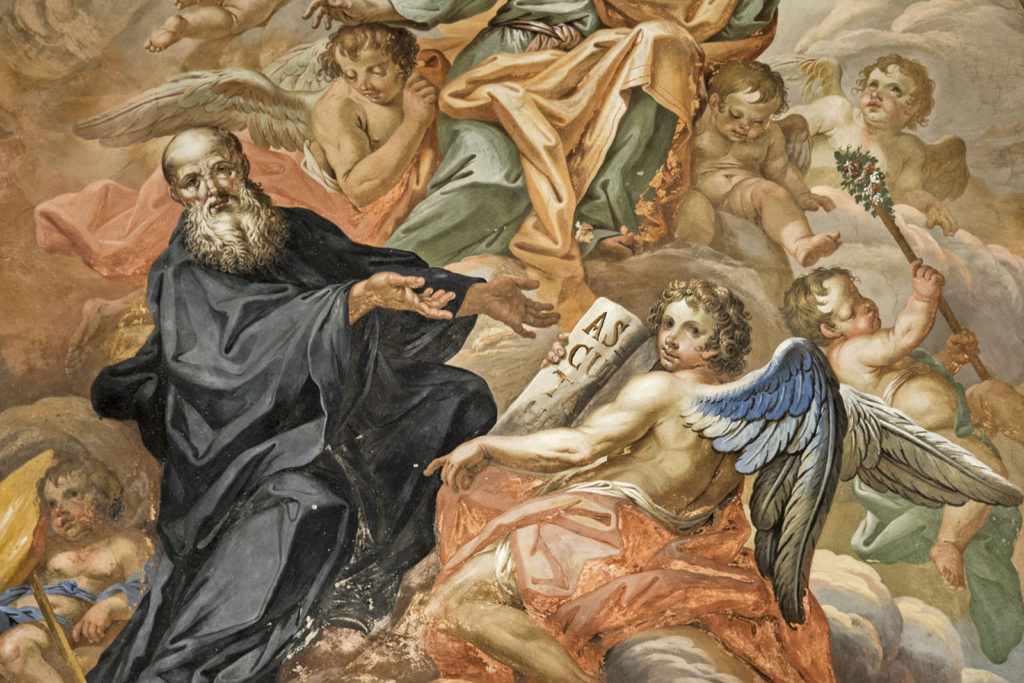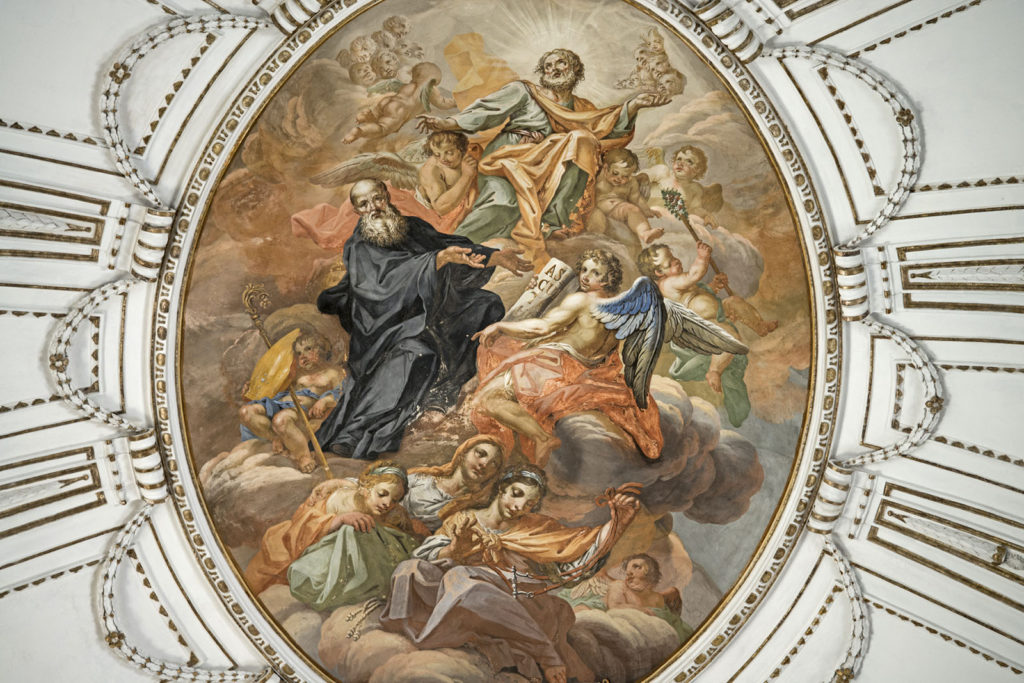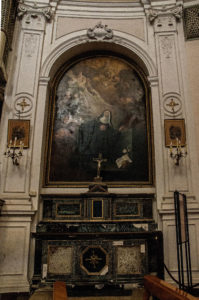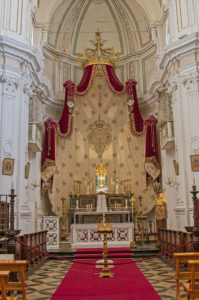The interior of the church of San Giuseppe (St. Joseph) is a single large oval-shaped room.
The Friar Alberto Maria di San Giovanni Battista most likely took inspiration for its floor plan from the church of Santa Chiara (St. Claire) in Noto.
The architect friar had two entrances built, one from Piazza Pola and the other directly from the convent for access by the nuns. As you enter the church you are surprised and overwhelmed by its very high ceiling, an effect achieved thanks to the majestic dome and the four windows that fill the space with light.
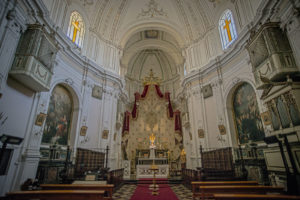
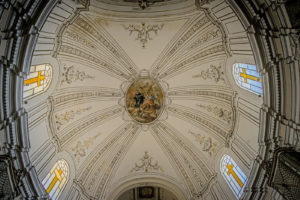
As for the walls, they were left white with some golden
stucco
decoration.
This pallor, however, is immediately broken up by
four colourful altars
placed along the walls, the painting on the high altar and the vault fresco.
